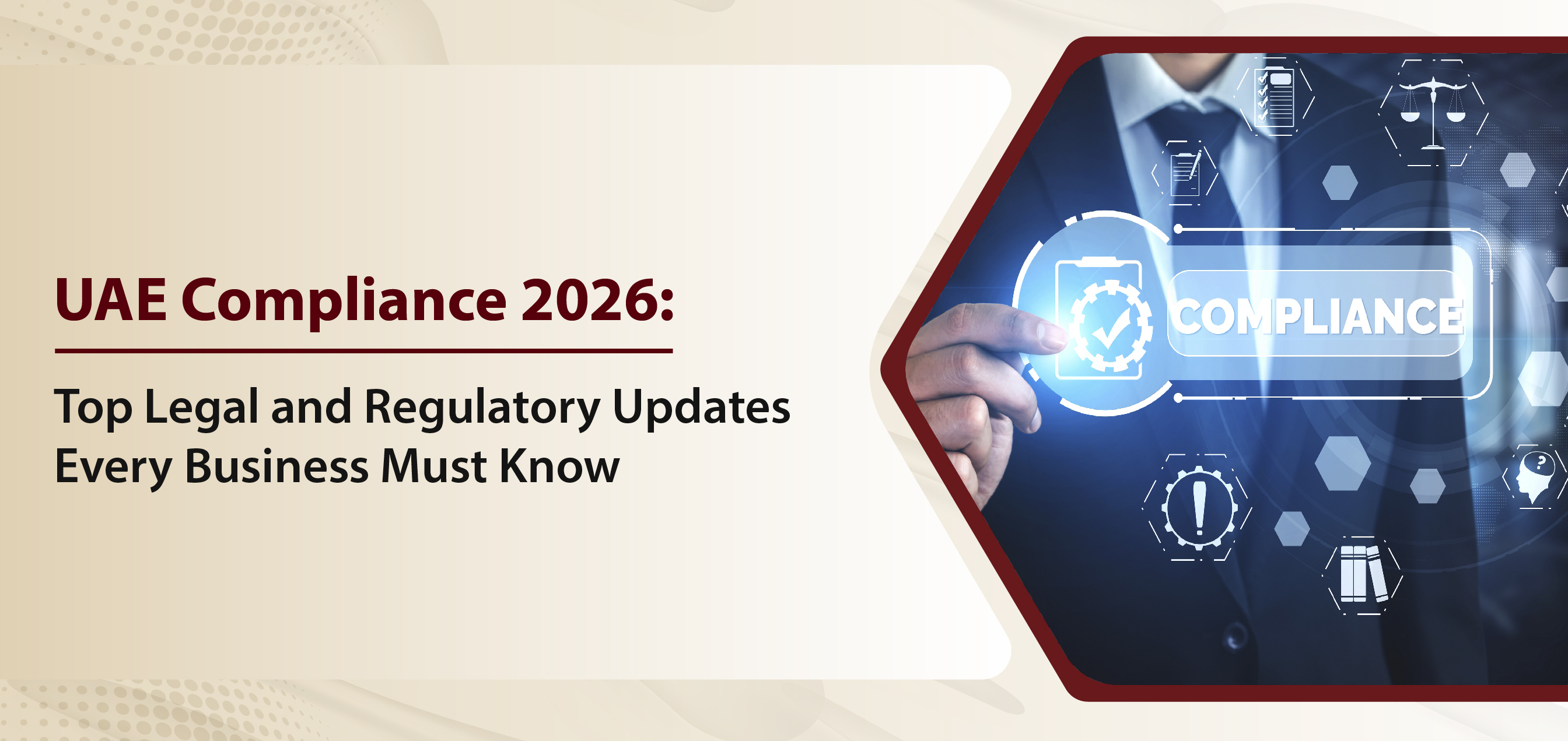In the UAE’s fast-changing business world, success now depends on how quickly companies adapt to new rules and opportunities. As the nation moves toward its 2026 vision of innovation and global leadership, staying informed about the latest updates is no longer optional. It’s a must for every forward-thinking business. In UAE, compliance is no longer just a formality; it’s essential for doing business.
The years 2025–2026 will introduce stricter rules for AML/CFT, UBO reporting, goAML filings, data protection under PDPL, and Emiratization. Regulators are conducting more audits and issuing higher penalties, while technology is transforming how compliance is monitored. Companies that act early and stay prepared will protect their growth, reputation, and long-term success.
Know The Importance of Business Compliance in UAE
The UAE offers a great environment for business, but it also follows strict rules to keep things fair, transparent, and investor friendly. Ignoring these rules can lead to fines, delays, or even losing your business license.
That’s why it’s important to follow all legal and regulatory requirements from the very beginning. Having a clear compliance checklist helps you stay organized, avoid problems, and focus on growing your business smoothly and confidently.
Now it is very important for every business to be informed and updated on the key business compliance changes coming before 2026.
Top Compliance Updates to be Aware Before 2026
1. AML/CFT: Stronger Rules and Wider Scope:
As financial crimes rise, the UAE is strengthening business transparency. The UAE has tightened its anti-money laundering laws under Federal Decree-Law No. 20 of 2018, extending them to real estate, gold dealers, and virtual asset firms.
Businesses must update policies, use proper systems, and train staff to stay compliant.
2. goAML Reporting to the FIU
With tighter monitoring, every business must stay alert. All businesses in UAE are required to report any suspicious or unusual activity through the goAML UAE system on time and in the correct format.
Keeping proper records and training staff on reporting procedures helps avoid penalties and ensures full compliance.
3. UBO Transparency & Regular Updates
To make business ownership clear and accountable, the UAE requires all companies to declare and regularly update their Ultimate Beneficial Owners (UBOs).
These details are stored in a centralized register to prevent misuse of legal entities. Missing or incorrect UBO information can lead to heavy fines and strict regulatory checks.
4. PDPL: Data Protection and Breach Reporting
With growing focus on privacy, the UAE’s Federal Decree-Law No. 45 of 2021 strengthens data protection. Companies must secure user data, obtain clear consent, and report any data breaches quickly, ideally within 72 hours.
Non-compliance can lead to heavy fines and strict action from regulators.
5. Labour Law Updates: Flexible Work & Benefits
As work models evolve, the UAE has modernized its labour rules under Federal Decree-Law No. 20 of 2023. The update supports remote and hybrid jobs, revises end-of-service benefits for flexible roles, and strengthens rules on fair termination and equal treatment.
6. Corporate Governance & Director Liability
The UAE is raising the standards for company leadership under Cabinet Resolution No. 12 of 2024. Directors must now be transparent about conflicts, keep strong internal controls, and can be held personally responsible for any legal or financial violations.
7. Corporate Tax & DMTT Updates
Starting January 2025, large multinational companies will pay a 15% minimum tax under the new Domestic Minimum Top-up Tax (DMTT). This works alongside the existing 9% corporate tax, with added benefits like R&D credits and refundable incentives to support innovation.
8. VAT Updates for Real Estate Companies
Under Cabinet Decision No. 100 of 2025, real-estate firms must follow new rules on VAT for mixed-use, off-plan, and service-charge transactions. Developers must ensure accurate classification and digital documentation to avoid penalties and stay compliant.
9. E-Invoicing Implementation in the UAE
The UAE has moved closer to fully implementing e-invoicing. Starting 1 July 2026, the system will go live in phases.
All businesses earning over AED 50 million must choose an Accredited Service Provider (ASP) by 31 July 2026 and start using e-invoicing by 1 January 2027.
Operational Readiness: Stay Prepared for Surprise Audits
Businesses should be alert! Surprise inspections are becoming common, so every business must stay prepared. Keep compliance records like CDD files, risk reports, and training logs ready for review usually stored for 5–10 years. Free zones now link visa approvals to real activity such as invoices, banking proof, and office presence.
Staying compliant isn’t just about following rules; it’s about protecting your business. Seeking guidance from experienced compliance professionals helps you stay prepared, avoid penalties, and operate with complete peace of mind.
Smart Businesses Choose AMCA for Lasting Compliance!

At AMCA, we simplify compliance with your business. Our experts help you stay ahead of UAE regulations, avoid costly penalties, and maintain smooth operations. Partner with AMCA today to build a secure, compliant, and future-ready business.
Contact AMCA today for professional compliance support
Call Us: +971 4 321 1204
Email Us: info@amca.ae
FAQs:
Q1: What are the key UAE compliance changes for 2026?
Businesses must align with stricter AML/CFT, UBO, PDPL, corporate tax, and Emiratization laws. Each demands timely reporting, documentation, and audit readiness.
Q2: How can companies stay compliant in the UAE?
Follow official updates from MOF, MOHRE, and FIU (goAML). Regular audits, policy reviews, and staff training ensure full compliance.
Q3: What happens if a business fails to comply?
Non-compliance can lead to fines up to AED 3 million, license suspension, or blacklisting. Repeat violations invite legal or criminal action.

.jpg)
.jpg)
